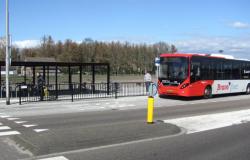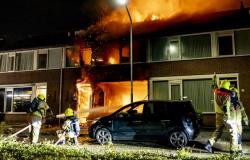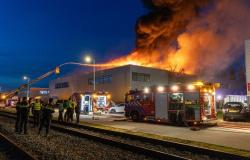What do Drenthe’s plans for nature and agriculture mean for the farmers themselves? “Fortunately, we can decide for ourselves how we achieve our goals,” says Tom ten Kate of the Drenthe Agricultural Youth Contact (DAJK).
There is quite a bit of money involved in the Drenthe countryside. On Tuesday, deputy Jisse Otter (BBB) reported that the provincial government wants 445 million euros from the government to reform agriculture, strengthen nature and to absorb the consequences of climate change, such as alternating periods of prolonged drought and extreme rainfall. And to think that this is only the budget for the first measures. In the long term, approximately ten times that amount will be needed.
Of that 445 million, no less than 339 million is intended for agriculture. What will happen to that money and are farmers happy with the chosen direction?
Meeting objectives
DAJK chairman Tom ten Kate (26) is happy with the system of ‘critical performance indicators’ (KPI). This sounds rather official, but according to him it actually offers farmers optimal freedom. “It means that you have to ensure that you meet certain objectives, but that you can decide for yourself how you do that. And we think this is very important. After all, every farm is different, everyone has a different starting position.”
Ten Kate is a livestock farmer himself, he has a company in Koekange with his mother and brother and therefore knows from his own experience how this system works. “For example, you can be given a target to emit less ammonia. Or about the amount of protein you get from your land.”
No unnecessary measures
According to Ten Kate, a major advantage of this individual system is that farmers are spared general measures that are not necessary for their business. “It sometimes happened that national rules were introduced to meet certain standards. You had to deal with that if your company already complied.”
According to Ten Kate, Drenthe is a national leader in this individual approach. “You see that other provinces, such as Brabant, are now taking over this.”
If the cabinet honors the Drenthe application, there will be money to help farmers with these measures. They can then receive a contribution for all kinds of technical measures in the stable. Such as a system that captures nitrogen before it is released into the air. Or for coaching or management support in going through all the changes.
Land is worth less
However, a lot of money also goes to ‘land depreciation’. And that is a hot topic. This results from the land exchange system, whereby farmers who have lands too close to nature reserves can exchange that land for land further away. To this end, the province buys up farms from farmers who stop farming.
The land near the nature reserves will then be given a different destination or used less intensively, causing a reduction in value.
Chairman Arend Steenbergen of LTO Drenthe fears that this means that the principle ‘agricultural land remains agricultural land’ cannot be fully fulfilled. When the current provincial government was formed, BBB, PvdA, VVD and CDA said that they would adhere to this when developing the Drenthe Rural Area Program. And Otter also thinks he can continue to achieve this.
Nature Network Netherlands
“I don’t think you can fully guarantee this if you start devaluing land,” says Steenbergen. He points out that, based on previous agreements for the Nature Network Netherlands (NNN), agricultural land is also being converted into nature.
Like Ten Kate, Steenbergen is generally happy with the KPI system, as well as the coaching and management support that farmers receive to achieve the goals. “You never become dumber from outside help,” he says. “It should be noted that the available money must benefit the farms, not advisors and the like.”
‘Landowner decides what to do with land’
For Gert-Jan Schuinder, chairman of the 17-member BBB faction in the Drenthe Parliament, the principle ‘agricultural land remains agricultural land’ is very important and he will hold the daily provincial government to this. According to him, the principle mainly means that Prolander, the executive body of the provinces of Drenthe and Groningen, is not allowed to convert agricultural land into nature on its own. “But every landowner can decide for himself what he does with his land and to whom he sells it. This may therefore be given to another farmer, to a nature organization or to the province. And if the new owner is, for example, the Drentse Landschap Foundation, they can of course make it nature. Or lease it to a farmer under certain conditions.”
Tags: Young farmers happy Drenthes approach rural areas Farmer reins






